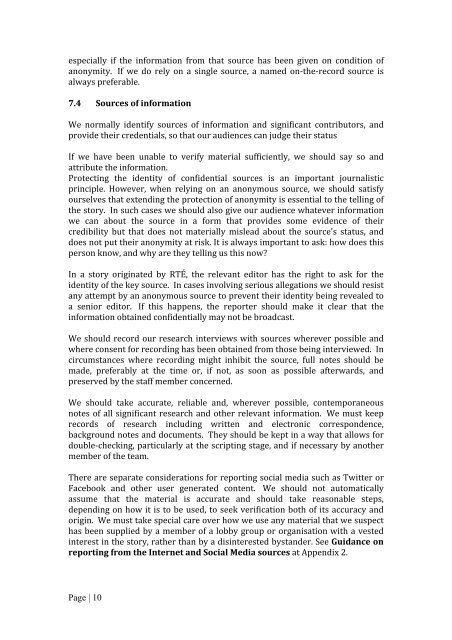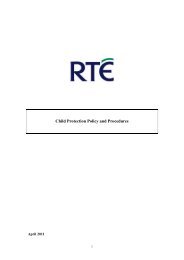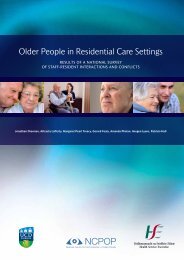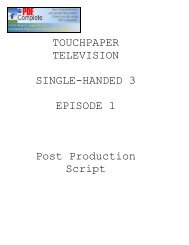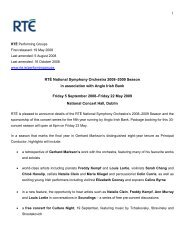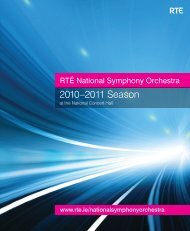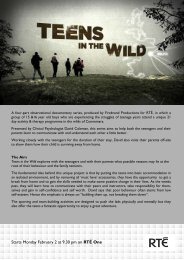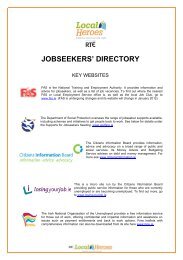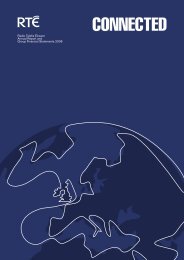JOURNALISM GUIDELINES - RTÃ
JOURNALISM GUIDELINES - RTÃ
JOURNALISM GUIDELINES - RTÃ
Create successful ePaper yourself
Turn your PDF publications into a flip-book with our unique Google optimized e-Paper software.
especially if the information from that source has been given on condition of<br />
anonymity. If we do rely on a single source, a named on‐the‐record source is<br />
always preferable.<br />
7.4 Sources of information<br />
We normally identify sources of information and significant contributors, and<br />
provide their credentials, so that our audiences can judge their status<br />
If we have been unable to verify material sufficiently, we should say so and<br />
attribute the information.<br />
Protecting the identity of confidential sources is an important journalistic<br />
principle. However, when relying on an anonymous source, we should satisfy<br />
ourselves that extending the protection of anonymity is essential to the telling of<br />
the story. In such cases we should also give our audience whatever information<br />
we can about the source in a form that provides some evidence of their<br />
credibility but that does not materially mislead about the source's status, and<br />
does not put their anonymity at risk. It is always important to ask: how does this<br />
person know, and why are they telling us this now?<br />
In a story originated by RTÉ, the relevant editor has the right to ask for the<br />
identity of the key source. In cases involving serious allegations we should resist<br />
any attempt by an anonymous source to prevent their identity being revealed to<br />
a senior editor. If this happens, the reporter should make it clear that the<br />
information obtained confidentially may not be broadcast.<br />
We should record our research interviews with sources wherever possible and<br />
where consent for recording has been obtained from those being interviewed. In<br />
circumstances where recording might inhibit the source, full notes should be<br />
made, preferably at the time or, if not, as soon as possible afterwards, and<br />
preserved by the staff member concerned.<br />
We should take accurate, reliable and, wherever possible, contemporaneous<br />
notes of all significant research and other relevant information. We must keep<br />
records of research including written and electronic correspondence,<br />
background notes and documents. They should be kept in a way that allows for<br />
double‐checking, particularly at the scripting stage, and if necessary by another<br />
member of the team.<br />
There are separate considerations for reporting social media such as Twitter or<br />
Facebook and other user generated content. We should not automatically<br />
assume that the material is accurate and should take reasonable steps,<br />
depending on how it is to be used, to seek verification both of its accuracy and<br />
origin. We must take special care over how we use any material that we suspect<br />
has been supplied by a member of a lobby group or organisation with a vested<br />
interest in the story, rather than by a disinterested bystander. See Guidance on<br />
reporting from the Internet and Social Media sources at Appendix 2.<br />
Page | 10


